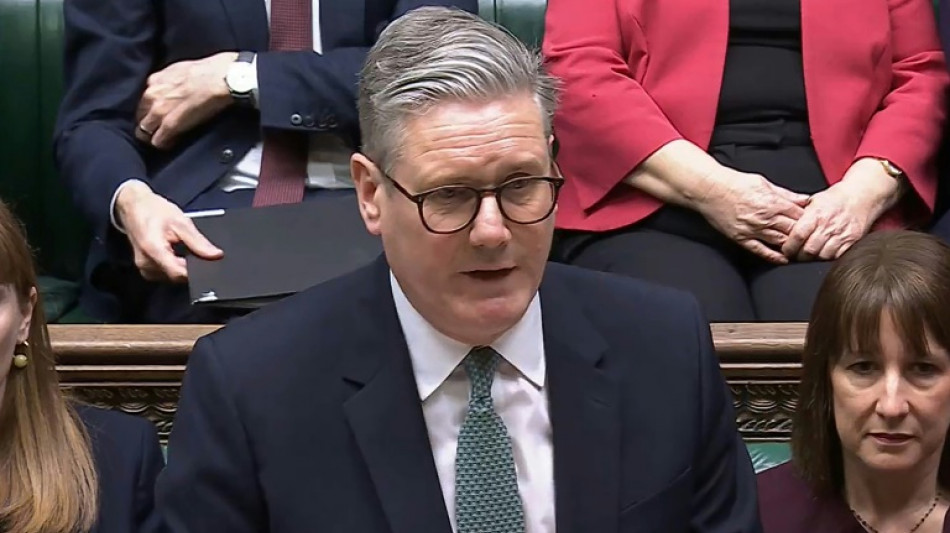
CMSD
0.2400


British Prime Minister Keir Starmer pledged Tuesday to boost defence spending to 2.5 percent of the economy by 2027, as uncertainty reigns over US President Donald Trump's commitment to European security.
Starmer expressed an intent to eventually reach three percent, a rise of 0.7 percent from current spending that would mark the biggest increase since the end of the Cold War.
His announcement comes ahead of key talks on Ukraine with Trump in Washington on Thursday.
It will be seen as an attempt to appease the US president who has demanded that European powers pay more for their own security.
The UK spent 2.3 percent of gross domestic product (GDP) on defence in 2023/24.
Starmer's Labour government had previously committed to increasing defence spending to 2.5 percent, but had not set a timeline.
The prime minister told parliament the increase would be funded by cutting overseas development aid from 0.5 percent of gross national income (GNI) to 0.3 percent.
Starmer added he hopes to hike spending to three percent of GDP in the next parliament, which would fall during a five-year period after elections expected in 2029.
The initial rise of 0.2 percent would cost the government £13.4 billion ($16.9 billion) more every year from 2027, said Starmer.
That will mean some "extremely difficult and painful choices", he told lawmakers, but added it would contribute to the "biggest sustained increase in defence spending since the end of the Cold War".
The government would "set a clear ambition for defence spending to rise to 3 percent of GDP in the next parliament," he added.
Trump has demanded that NATO allies more than double their defence spending targets to five percent of economic output.
- 'Modernise' -
The United States currently spends around 3.3 percent on defence.
When he meets Trump, Starmer faces a difficult balancing act between backing Ukraine while not annoying the US leader.
He has indicated he will reaffirm support for Ukraine and President Volodymyr Zelensky and insist that Kyiv is at the heart of negotiations for a truce with Russia.
Trump has opened discussions with Moscow to bring an end to the war,
Starmer will hope that his announcement helps to convince Trump to provide security guarantees for any European peacekeepers sent to Ukraine to monitor any ceasefire that is agreed.
The UK premier and France's President Emmanuel Macron have said they are willing to send British and French troops to Ukraine, but they would require a US backup.
Security guarantees would likely take the form of air cover, intelligence and logistics.
"The nature of warfare has changed significantly. That is clear from the battlefield in Ukraine, and so we must modernise and reform our capabilities as we invest," Starmer said.
"This investment means that the UK will strengthen its position as a leader in NATO and in the collective defence of our continent, and we should welcome that role."
X.Gu--ThChM